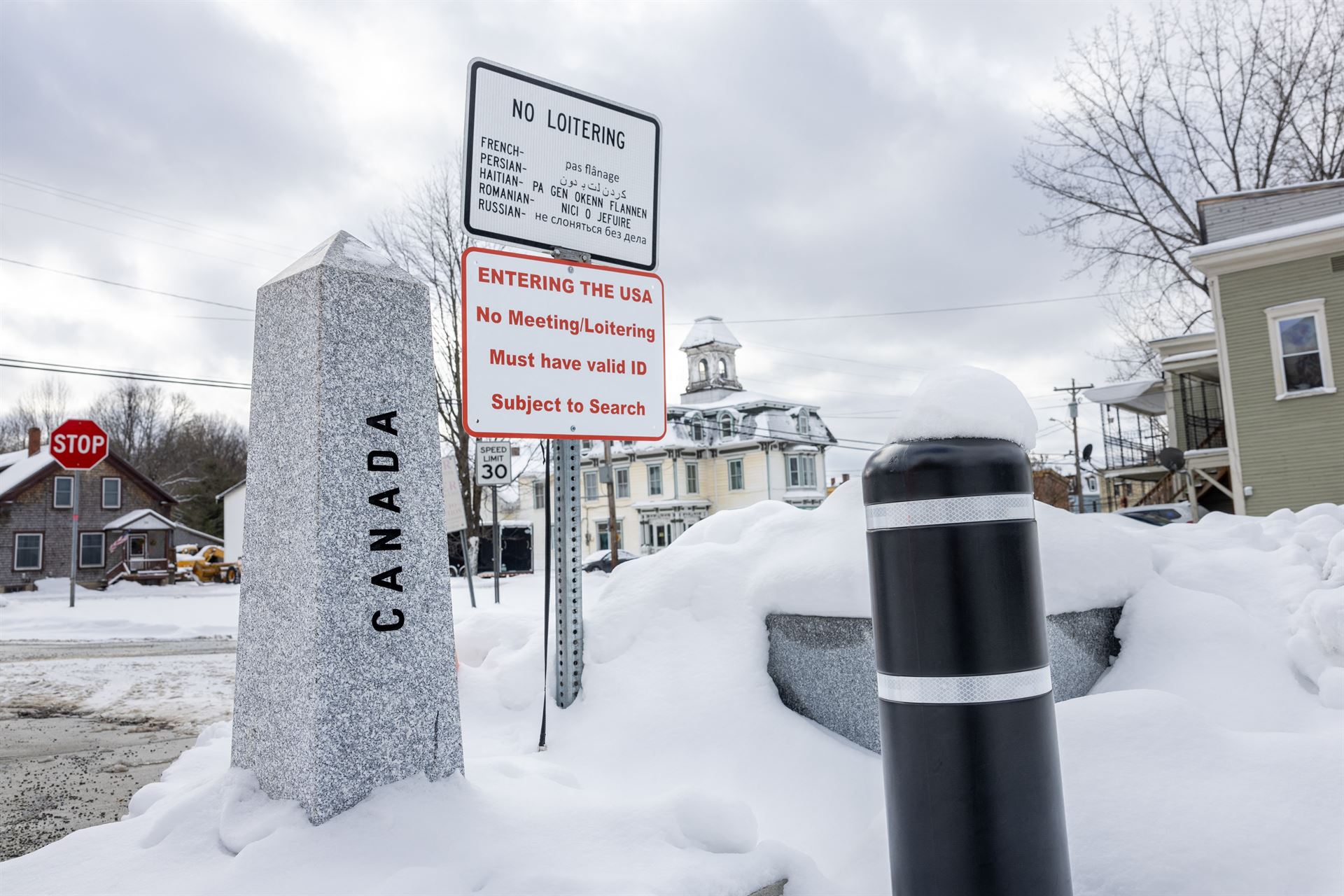
TORONTO - Canada deported more people last year to hit its highest annual level of removals in about a decade, overwhelmingly deporting people whose refugee claims were rejected, data obtained by Reuters showed.
By late November, Canada's removal numbers had reached their highest point since at least 2015, when the governing Liberals led by Prime Minister Justin Trudeau came to power. The government has also budgeted more money for deportations this year.
Trudeau's government, now in its final days, has sought to show Canadians it is getting tough on immigration amid a rising backlog of refugee claims and a backlash against immigrants over concerns that immigration is exacerbating a housing shortage.
Canada's border agency said the spike in deportations is tied to a "significant increase" in the number of people applying for asylum since 2020, prompting it "to enforce removal orders in a more efficient and timely manner."
Reuters requested border agency data on deportations, excluding people who left of their own accord and those sent back to the United States as part of a bilateral agreement under which would-be asylum-seekers are turned back.
The remaining total shows Canada deported 7,300 people between January 1 and November 19, 2024, an 8.4 percent increase over all of 2023 and a 95 percent increase over 2022.
ALSO READ: Canada refugee claims drop as country issues fewer visas
The border agency did not provide equivalent figures for all of 2024. This week, it posted data online from 2019 to 2024 that do not break down deportations excluding returns to the US under that bilateral agreement. This data also showed an increase in the number of deportations.
About 79 percent of the 7,300 people deported in the first 11 months of last year were deported because their claim for refugee status had been rejected. That is up from about 75 percent in 2023 and 66 percent in 2022.
About 11 percent of the people deported last year through November 19 were removed for non-compliance with the conditions of their stay in Canada unrelated to a refugee claim, for example for overstaying a visa. About 7 percent were deported because they had committed a crime either in Canada or elsewhere.
A spokesperson for Public Safety Minister David McGuinty did not immediately respond to questions about the deportations.
A spokesperson for the border agency said in an email that removal numbers fluctuate.
READ MORE: Canada pulls refugee welcome mat, launches ads warning asylum claims hard
“The number of removals of those who received a negative asylum determination have increased each year since emerging from the pandemic,” wrote the spokesperson, Luke Reimer.
“These efforts are essential in maintaining the integrity of Canada’s asylum system.”
Canada has been dealing with record numbers of refugee claims, although the monthly totals dropped to 11,838 in January from 19,821 in July. There were 278,457 claims pending as of last month - the highest pending total in decades.
More money for deportations
One concern with these removals, especially those targeting failed refugee claimants, is that people can be deported while still appealing decisions about the risk they face if returned to their home countries, said Aisling Bondy, president of the Canadian Association of Refugee Lawyers.
"They could be removed even if there is significant error in the risk determination," she said, worrying people are being deported to places they will face persecution.
Reimer said in an email the agency "only actions a removal order once all legal avenues of recourse that can stay a removal have been exhausted."
The rise in refugee claimant deportations speaks to the government's priorities, including a tough stance on migration, said University of Toronto law professor and Human Rights Chair Audrey Macklin.
READ MORE: Canada hints at fast-tracking refugee refusals
"You can decide that you want to make a show of how many people you are deporting to show that you are effective at policing the border," Macklin said. "Then you go with people who are easier to find and remove, and those are going to be, often, refugee claimants."
The prospect of deportation could also deter would-be refugee claimants, she said.
Canada is on track to deport even more people in the coming years: Late last year the government pledged C$30.5 million ($21.3 million) over three years to increase deportations.
Canada Border Services Agency spent C$65.8 million on removals in 2023-24, up from C$56 million the year before.
At the same time, Canada has pledged C$1.3 billion toward border security to appease US President Donald Trump as he threatens sweeping tariffs on Canadian imports.
The ranks of those eligible for deportation could grow.
Canada is slashing temporary and permanent immigrant numbers and part of its plan relies on more than 1.2 million temporary residents, including workers and students, leaving the country next year, and another 1.1 million leaving the following year, according to government figures.
Immigration Minister Marc Miller has said Canada will deport people who do not leave on their own.
"It is people's choice not to leave and if they don't, they face the consequences – including, after due process, deportation,” he told Reuters last year.


